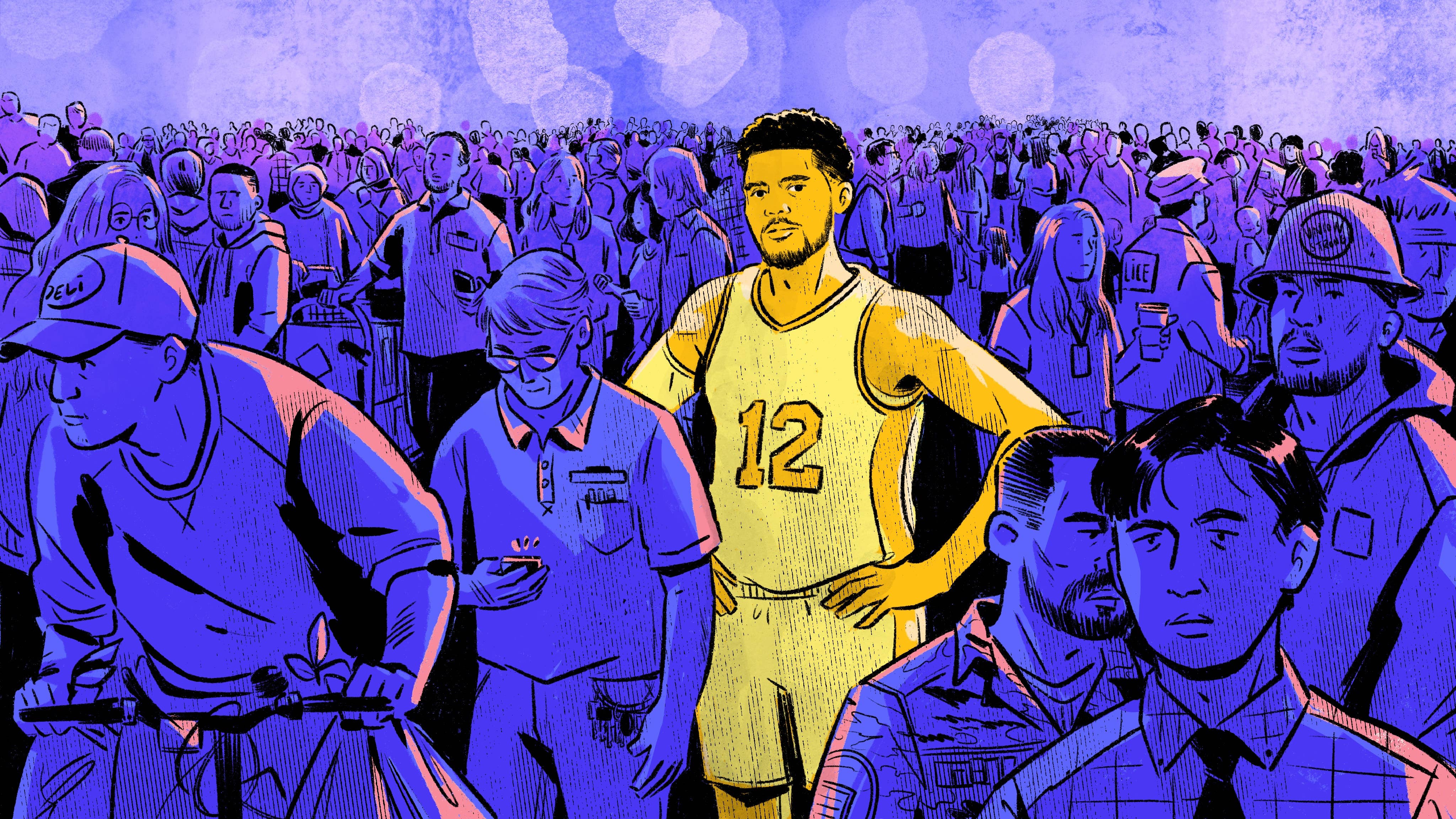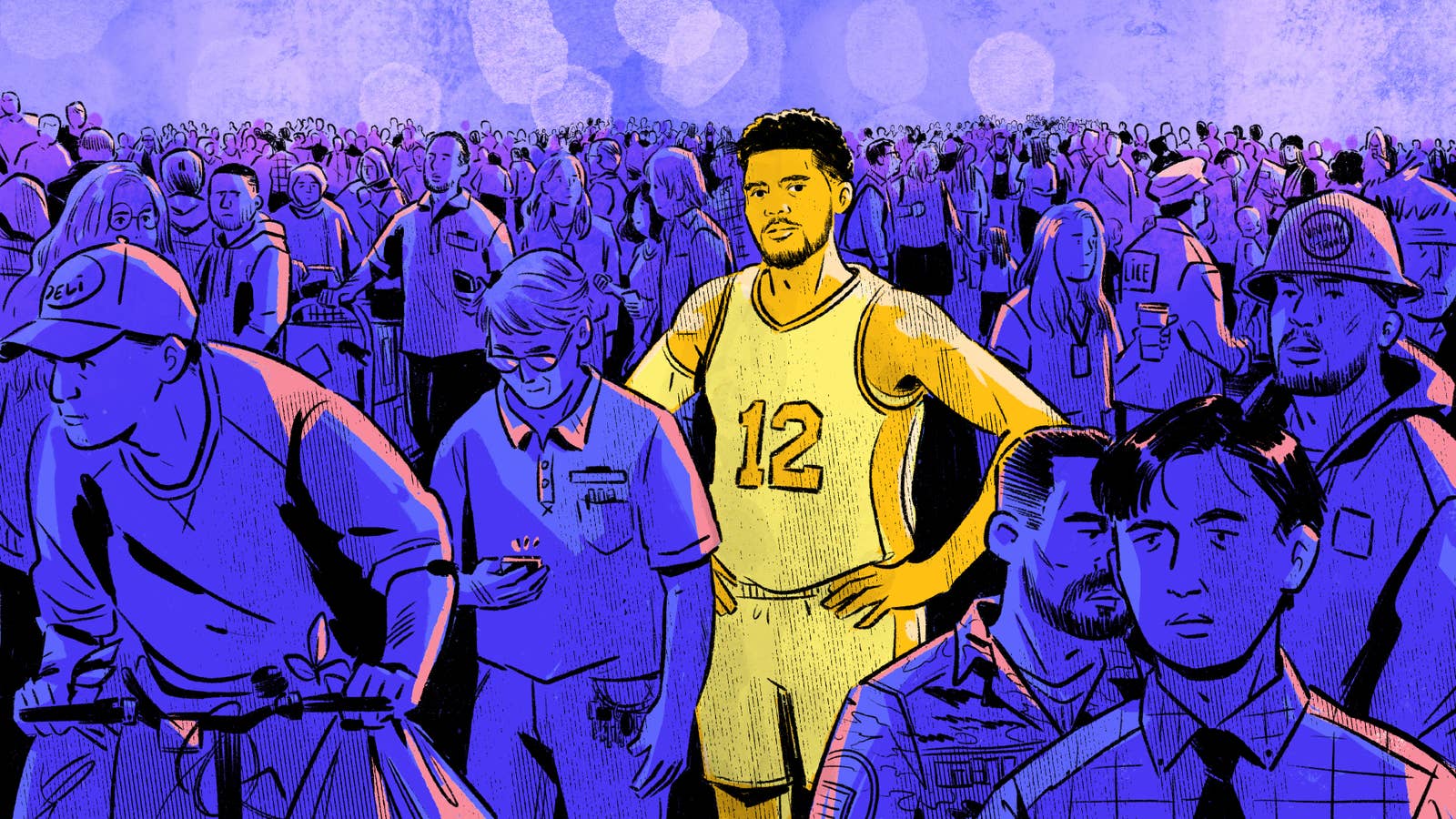
Every morning, people wake up and prepare to embark on their days. Some do it with a smile. Some don’t. Some even need a little support and motivation to get going. And some simply don’t want to be bothered. No matter who you are or what you do, people everywhere experience pressure—good or bad—on a daily basis, especially professional athletes. But there are ways to cope.
Sure, the life of a pro athlete sounds glamorous (and certainly is, in many ways), but imagine being a basketball star: you’re constantly on the road, you’re away from your family for long periods of time, potential trades are constantly hanging over your head, and millions of people decide if they love you or hate you based on how you handle a ball. Numerous people claim to want to be pro ballers, but how many can say they’re truly prepared to handle the strain? Couple that scrutiny with personal stressors and normal emotions, and life can get hard. Thankfully, players like Philadelphia starting forward Tobias Harris have worked hard to learn to manage the anxieties that accompany their profession. Harris knows that tending to his mental health is crucial. But figuring that out wasn’t easy. In fact, it took practice.
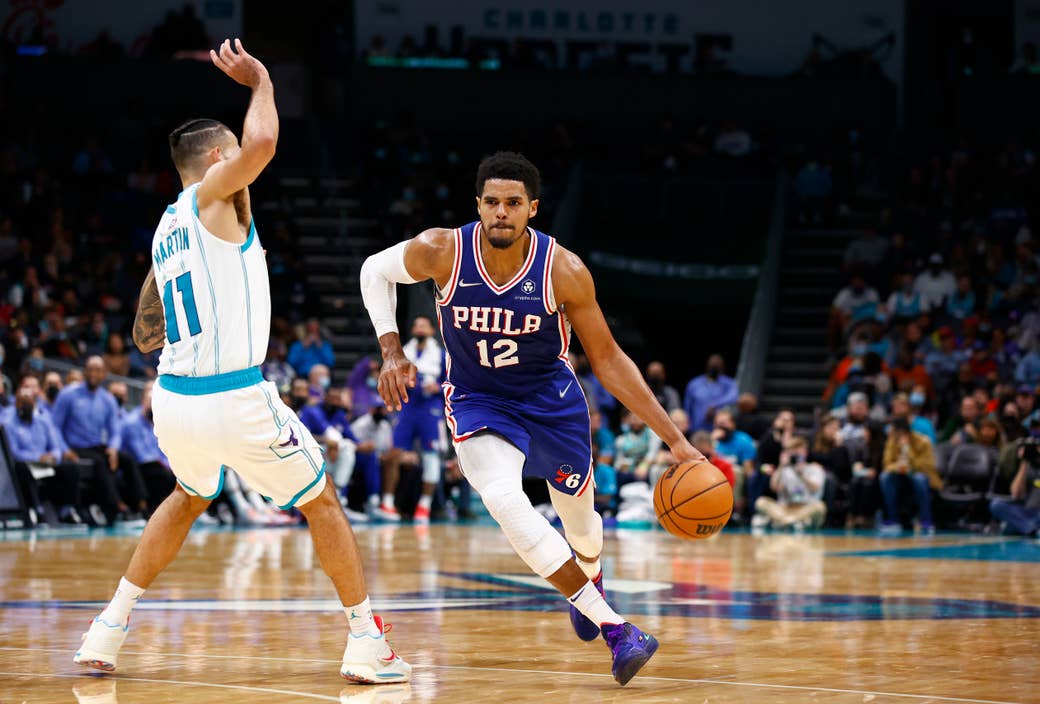
There’s a longstanding stigma surrounding mental health for professional athletes. But, according to a 2021 study, elite athletes may actually be “at an increased risk” for mental health problems like anxiety and depression. Unfortunately, many athletes haven’t wanted to admit to or address the topic in public.
“You’re taught as kids, be tough, don’t be crying,” says Harris. “We’re supposed to be alpha, tough, strong. I think [the stigma] comes more from the outside world. When they look at athletes, [it’s] like [they’re] superheroes. Then you add the money component to it [and it’s], Well, if you guys are making so much money, nothing can be wrong. That’s far from the truth.”
As the Philadelphia-based baller sat in front of a sun-filled window, he explained to Complex that “people are people.”
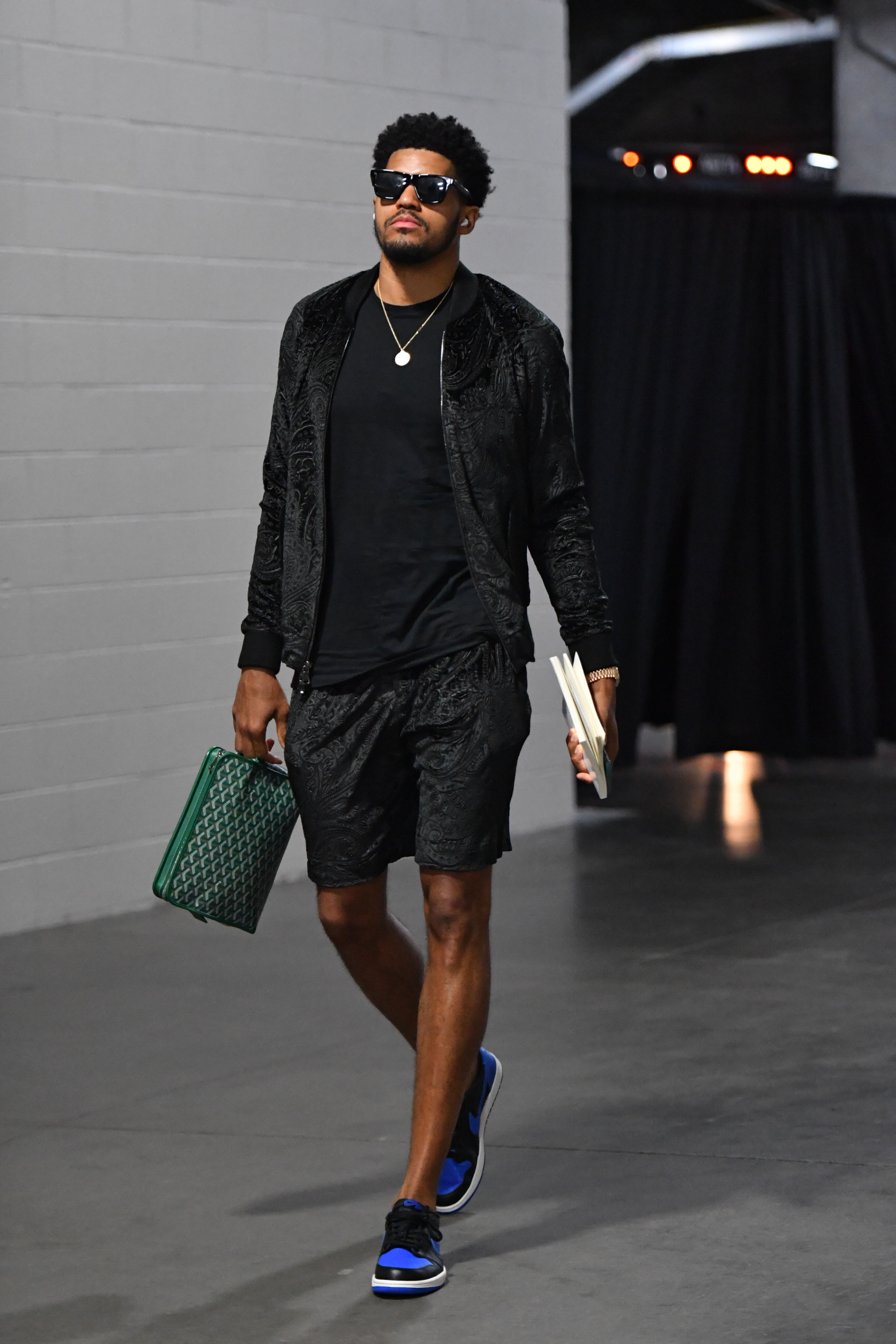
“Whether somebody’s the wealthiest person or the poorest person, they each have different circumstances. They’re going through a different walk and a different battle,” says Harris. “I know me, in my own personal life, I had to learn to have compassion [for] all people in all different walks of life.”
But according to Harris, learning compassion is only part of the journey to understanding one’s mental health. While discussing mental health (in public or private) has been taboo for years, recent conversations and public declarations by celebrities about their mental health struggles have encouraged others to explore and address their own emotional and mental health needs. But sadly, for many, those discussions have been absent until now.
“I kind of grew up a little skeptical of mental health. I just always thought it was one of those things, like, Life can’t be that bad, right? That was a very naive way of thinking,” Harris admits. “I think that was just how I perceived things. Then, the older I got, the more mature [I got] and the more research I did on learning… and understand[ing] like, No, it’s a real thing. People struggle on the daily with thoughts and emotions.”
Prompted, Harris goes on, explaining, “I think being able to dive into mental health just opens up so many doors for us to figure out ways to improve ourselves as people. I think it’s amazing when a person is able to really sit back and understand how they can grow, how they can improve their own mental space and grow themselves. It’s huge.”
But while conversations about mental health are vital, Harris has also learned that you can’t listen to what everyone has to say, especially on social media. His journey to self-discovery has shown him the ways the various online platforms can unconsciously alter people’s mental state, for better or for worse.
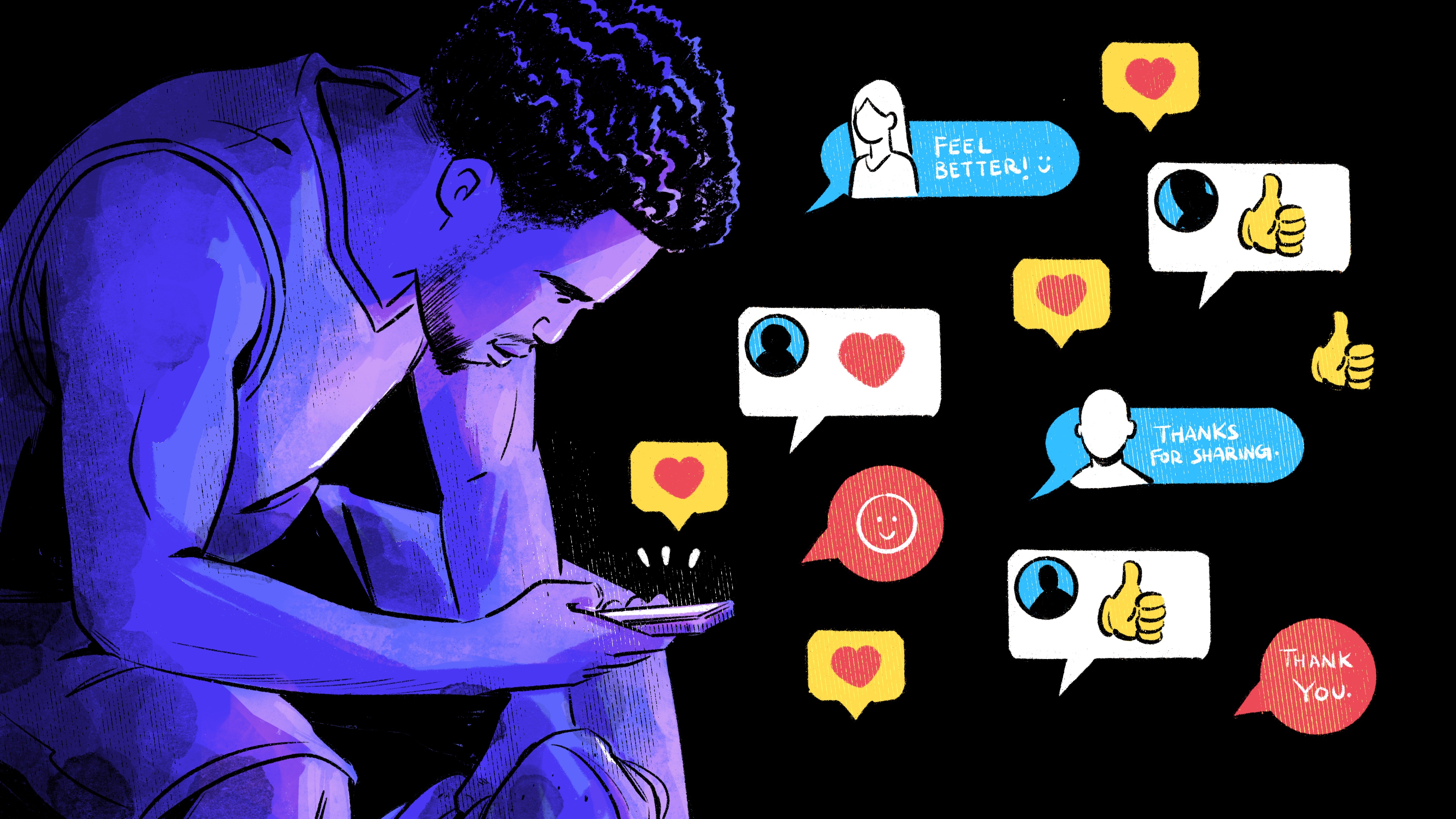
“A lot of people have access to communicate with a lot of different people in different ways. It’s a way to use your platform and your brand to open up and speak for not only yourself, but a lot of people that have been afraid to come out and speak,” Harris says about the benefits of social media surrounding dialogues about mental health. “Sometimes it just takes one person to open that door and really acknowledge what they’re going through. Then it’s kind of like a domino effect.”
And though anyone can inspire a conversation about mental health, Harris says people “appreciate” hearing about the lives of celebrities.
“I know a lot of people do appreciate hearing from athletes and entertainers about their lives and about what they go through because there [are] some similarities in a lot of different walks [of life]. And I think that has just [pushed] players, especially in our league and across professional sports, to be more comfortable with allowing their voices to basically speak on what they’re going through.”
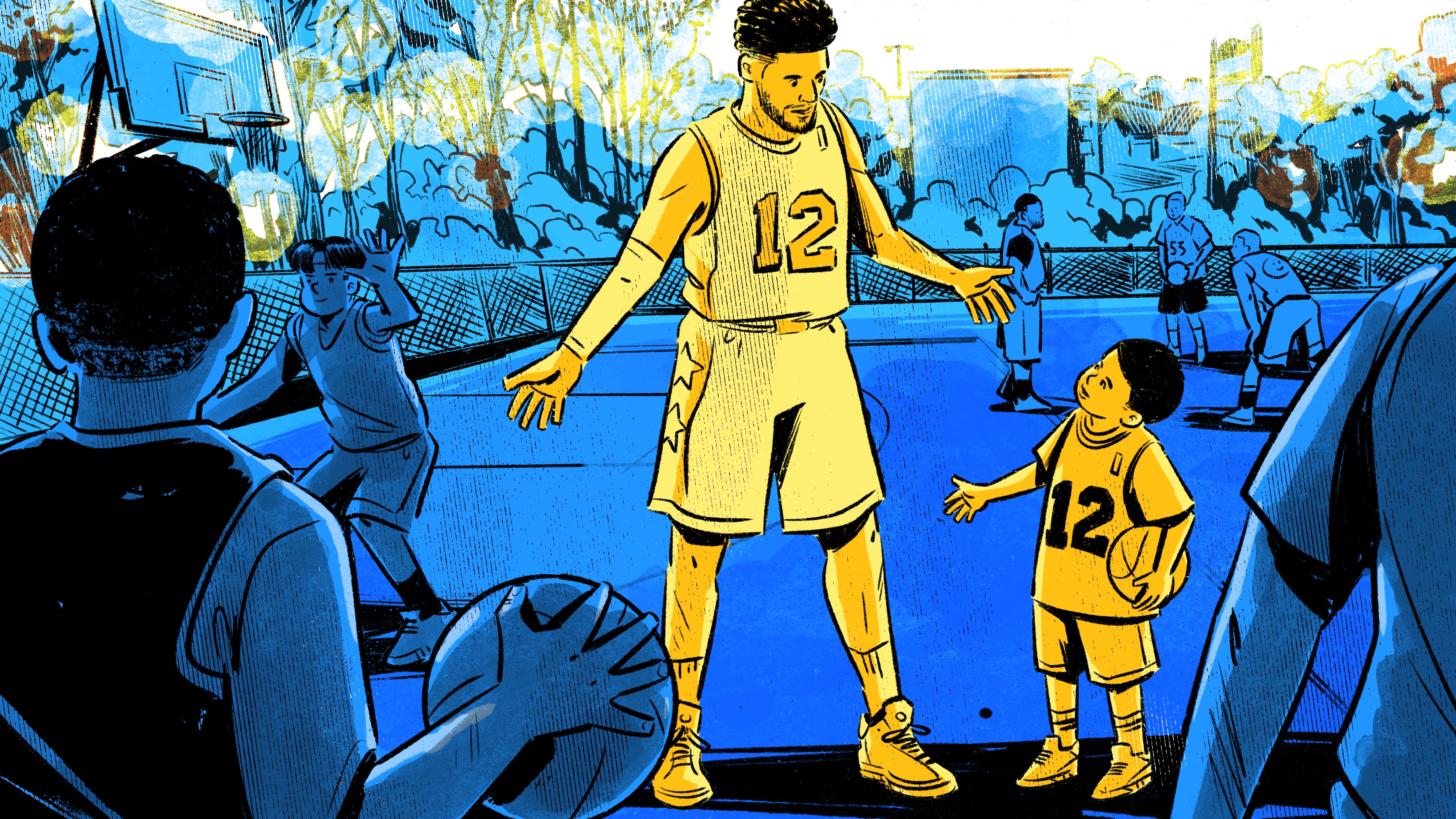
Harris believes entertainers and athletes currently hold the most influence over today’s youth, and hopes they—including himself—continue to open up about their experiences to stimulate discussions about mental health.
Over the past two years, like many, the 29-year-old Harris has had to find new ways to maintain his mental health, especially while adjusting to living inside a literal basketball bubble that included three properties housing around 500 other players.
“When you really look back at it, it was such a weird time in the world. A pandemic [is] going on, and then we say, Alright, we’re going to go play some basketball. I think everybody got through the bubble in a different way, but I think because we were out there hooping and playing, that was the escape of everything,” says Harris with a smile on his face.
“For me, it was really just hanging out with the team. Everybody had families they were away from,” he says. “So it was like, Alright, let’s figure out how we can just make the best of this situation.”
"Sometimes it just takes one person to open that door and really acknowledge what they’re going through. Then it’s kind of like a domino effect."
“In the grand scheme of things—for everything going on in the world at the time, through the pandemic and through social injustices—we [were] safe in an environment, playing basketball. But at the end of the day, with everything else going on, it was like, How can we figure out ways to be more? I think we got a lot out of the bubble.”
Because of the pandemic, mental health has become a prevalent conversation for many—both athletes and others—but the need to normalize and spread that awareness is real according to Harris.
“Hopefully we continue to push this message and continue to support each other and allow there to be an understanding and an opening for these types of dialogues and conversations through families, through kids, and [through] schools,” Harris says, expectantly. And with athletes like him demonstrating the importance of mental health care for all, that seems more likely now than ever.

